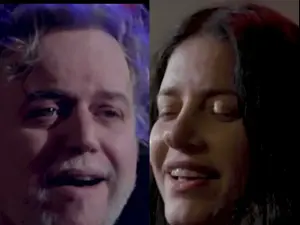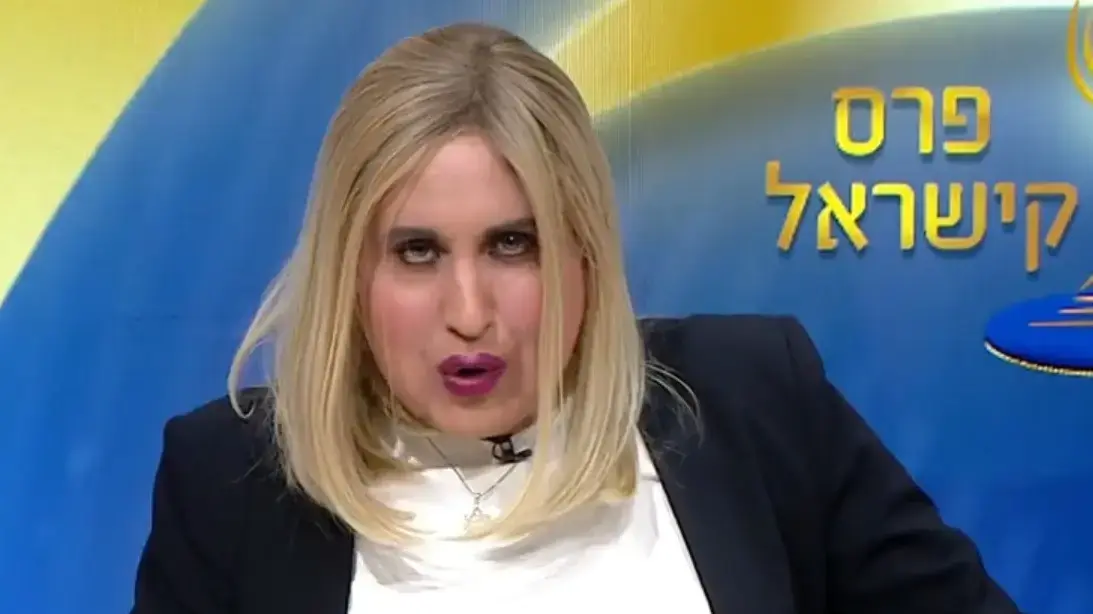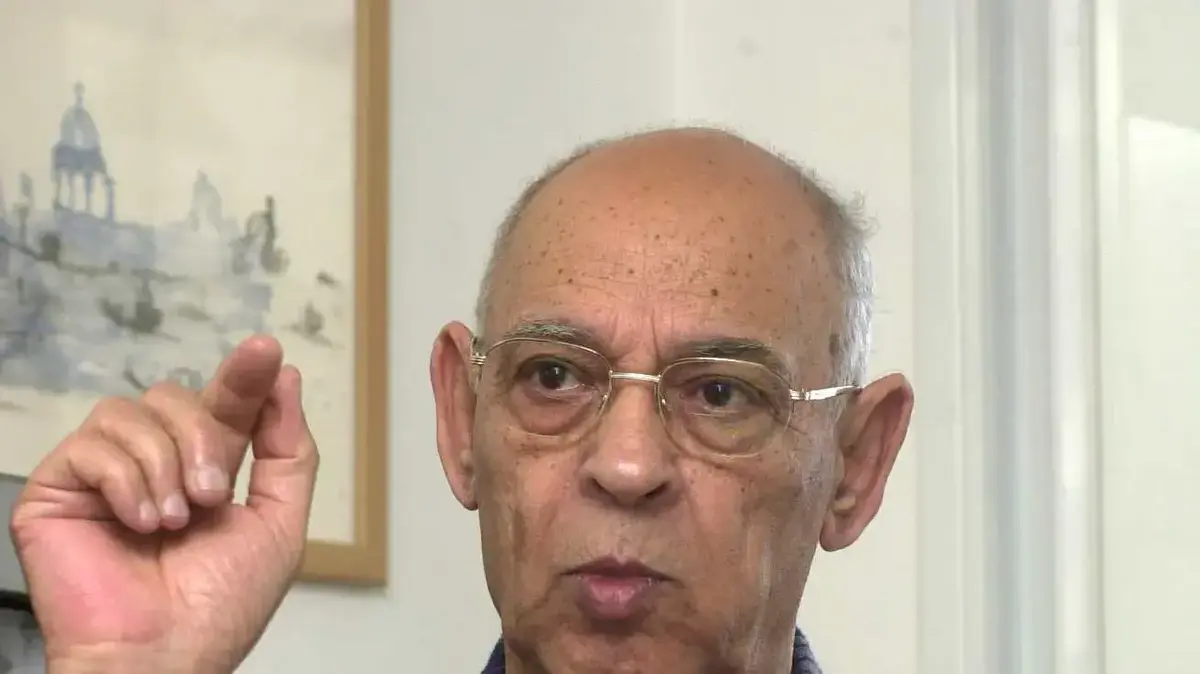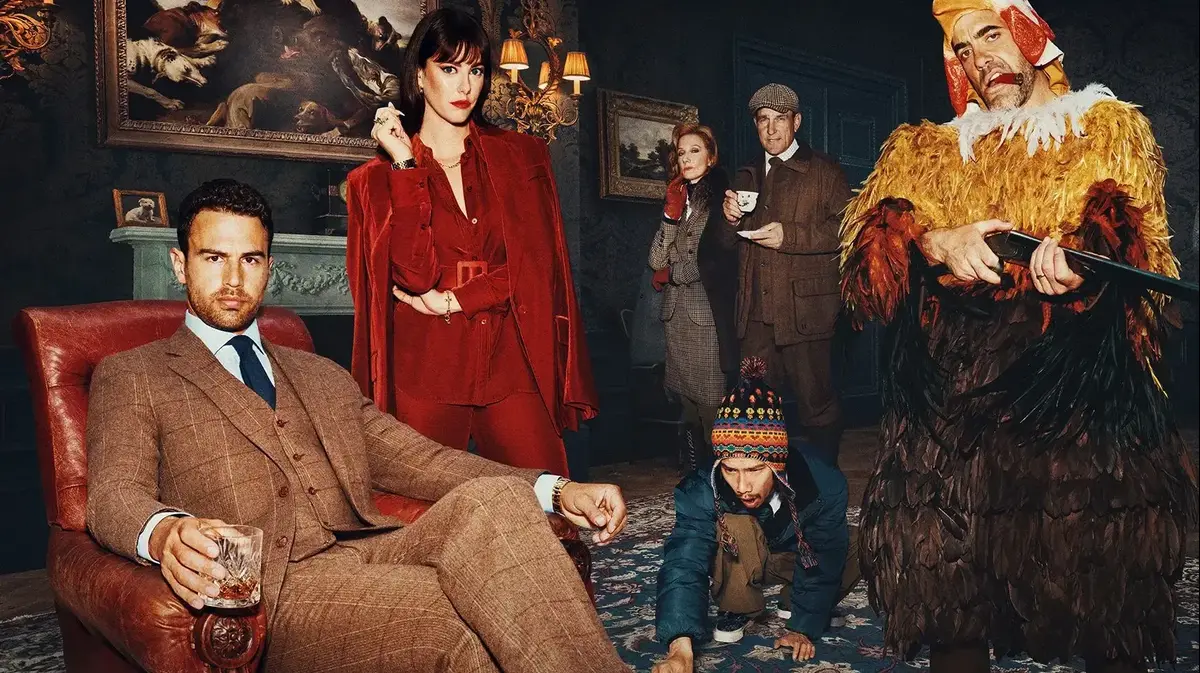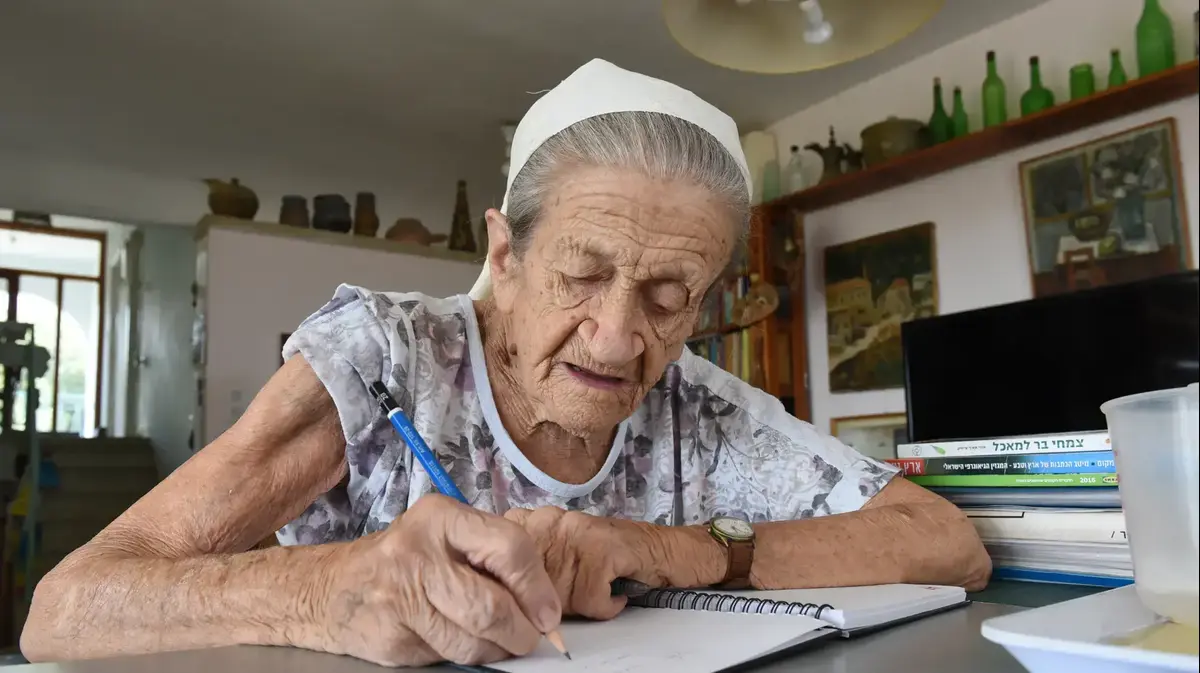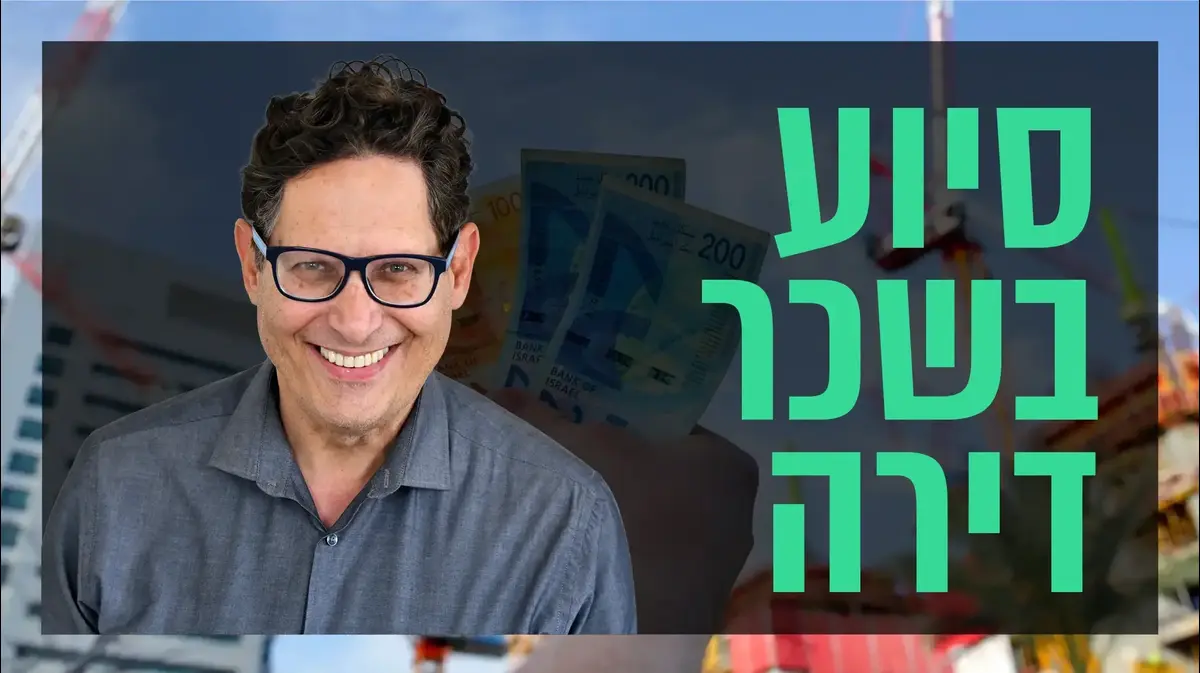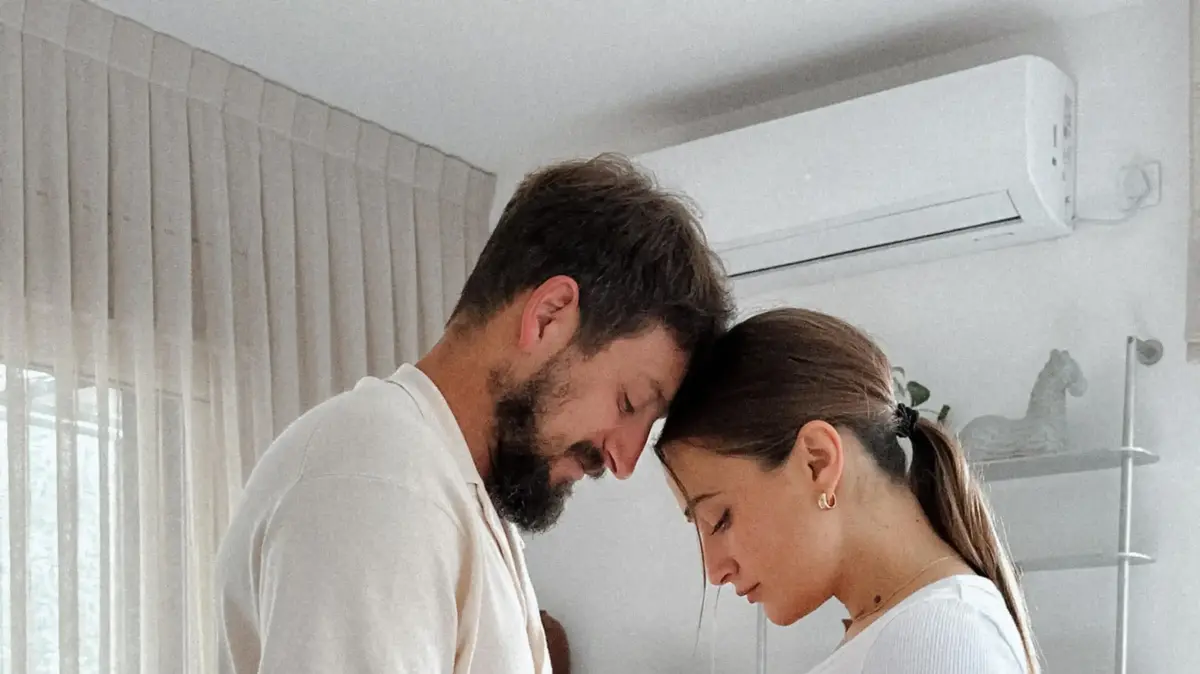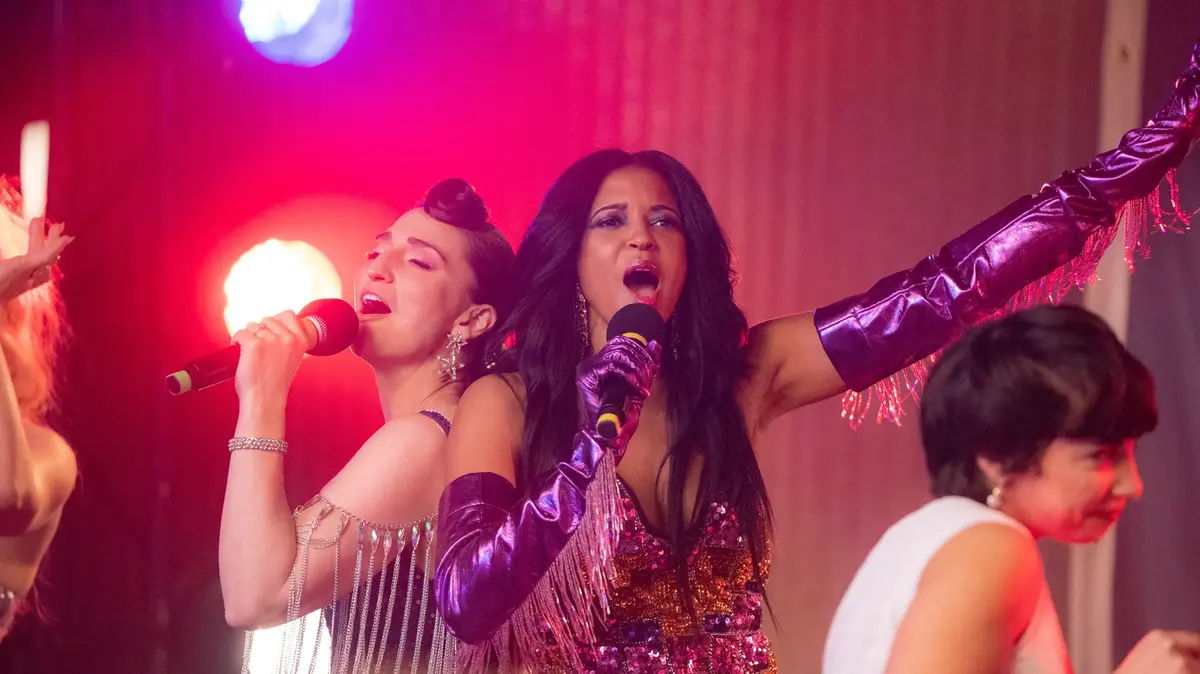culture
TV
Israeli television
Israel celebrates 73
In retrospect, they deserve a paragon: the wonderful Israeli series that were missed in real time
In honor of Independence Day we went back to some of the series that received real-time disregard or negative reviews but in retrospect turned out to be a flashback worth seeing.
From "a place to worry" to "Lost in Africa", from "Johnny" to "Pick Up" - Paragon is not a bad word
Tags
Vicky and I.
A cause for concern
Ben Byron Braude
Wednesday, 14 April 2021, 13:38 Updated: 15:17
Share on Facebook
Share on WhatsApp
Share on general
Share on general
Share on Twitter
Share on Email
0 comments
The Serpent
Daniel Salomon Solomon Dana Adini The Great Duet Parade ...
Anna Aronov, Itai Turgeman, VIP winning couple
Documentation: MK Ofer Kasif was attacked by police during a demonstration ...
Noga Erez appears on the program "Puppet of the Night"
Ati Schulberg Iggy Waxman Word Games
Anna Aronov Network 13
Atara Frisch
Yossi Sheetrit Chef Games
Memorial Day for the Martyrs of the Israeli Systems and Hostilities ...
the 80s
Q: Into the storm
Vicky and I (Vicky and I)
Israeli television evokes mixed feelings in us.
In its 73 years, a glorious television industry has sprung up in Israel, which is not self-evident in the middle of the wilderness of the Middle East.
This industry has spawned hundreds of successes, has cultural iron-clad assets like "The Chamber Quintet" and "Saturdays and Holidays," formats sold overseas ("The Safe," "The Next Star") and even series broadcast to millions in the original language ("Fauda," " Stisel "). Along with all this goodness, we live in a constant feeling that our TV is not good enough, that it is" near ". The abundance that comes to us from abroad makes us think that we have been knocked out, that" there "the TV and quality content is" spilled " All you get is a mix between a serious-minded face of a news presenter and cooks working on a dish of fish in a persimmon sauce.
The truth is that alongside the justified criticism of the multiplicity of news and reality, the Israeli television industry is careful to produce quality content all the time, but due to the abundance and multiplicity of channels, we are not exposed to them.
In honor of Independence Day, we went back to the series created here in the last twenty years and received in real time disregard and / or negative reviews but in retrospect turned out to be a flash worth seeing.
Some of them ("Place to Worry", "Lost in Africa") have matured excellently and hold an excellent screen to this day, on others ("Pick Up", "Johnny") you can already see the signs of the times but they are still funny, kicking and smart, sure a lot More than they were given credit for at the time of their original broadcast.
It is said that Paragon is a word that exists only in the Hebrew language, so in honor of the most Israeli day of the year - accept the parade of series that did not receive Paragon in real time and it is time that they also enjoy some kindness.
For our variety of special articles for the 73rd Independence Day - click here
More on Walla!
Watch: Noga Erez performs "Views" on Jimmy Kimmel's night show
To the full article
Johnny (Channel 2, 2002-2003, Season 1)
This is the story of an opinionated Iraqi named Doris Mualem and her son Gay Naji (Johnny) who live next door to each other in an apartment building in Ramat Gan.
She - opinionated, domineering, sexual, vulgar and lazy, he - gentle, fragile, fanciful and ambitious.
They both are not able to be in the same room for more than two minutes without a fight but also do not really manage to get away from each other too much.
This is the starting point of the sitcom "Johnny" which was broadcast on the Channel 2 franchise "Teled" almost 20 years ago and was created by its main actors Itzik Cohen and Yonatan Cognac.
Already in real time the broadcast of "Johnny" on Channel 2 is considered an obvious choice.
Yes, we are talking about years after winning the Dana International Eurovision (she also hosted a series), and the country had seen representations of LGBT positive on the screen but the comedy mainstream at the news with a drag queen and a man gay? That's another story altogether.
If that is not Surprisingly, "Johnny" did not survive more than one season, although she gained a small fan base that fell in love with her wit that managed to combine ethnic, sexual and political humor and everything in a light and colorful package. The late Rosina Cambos played Frida - Doris' best friend who fled Israel from the regime Ceausescu in Romania together with her mother (played by the late Davida Carroll), and provided the series with another layer of humor that some saw as abusive towards immigrants, but in fact the "Sabras" laughed at us.
Despite the years gone by and the fact that it won only one season, "Johnny" remained a sweet memory by those who saw it in real time and fell in love with its all-too-special camp atmosphere.
Last year she won another broadcast on the revamped Channel 24 and watching her episodes proved that quite a few of her punches are still working, assuming you are still able to contain recorded laughs.
At a time when commercial channels offer us a mix that includes reality, news and very few dramas (most of them conservative), it's fun to recall longingly the years when our television had a little (much) more courage.
More on Walla!
Murder as well as Exhaustion: "The Snake" turns a suspense story about a serial killer into an awkward smear
To the full article
2. Pick-up (Channel 10, Season 1, 2005)
In one word: Bruria, and in two words?
Bruria Pascal.
The presenter of the "Trans" company, played by Evelyn the Redeemer, is one of the most powerful and memorable female characters written for the Israeli screen.
Pascal (who also returned later in the series "Rest") is a diva from hell, one who abuses employees and behaves shockingly to passengers but always makes sure to keep an ironed uniform and hair without ends.
"Pick Up", the daily comedy drama that aired in the early years of Channel Ten, was created by Jonathan Cognac, Avner Bernheimer and Michal Cooper-Koren and dealt with the world of flight attendants, pilots and passengers on the fictional company "Trance".
The casting was eclectic and included (besides the Redeemer) also Shashi Keshet as Shlomo Zuckerman as the owner of "Trance", Yechiel Alkabetz as a pilot with the generic name "Omar Sagi", Rivka Michaeli as Ada Pascal (Bruria's mother who was even meaner to her), Max Olarchik (today Musician in one of the most reputed rock bands in the world) who played Adam Zuckerman's son, Aviv Alush as the criminal stewardess and of course Bar Refaeli in the first dramatic role as Noaa Zuckerman - a stewardess and the owner's daughter.
"Pick Up" received terrible reviews and did not receive an impressive rating but on re-viewing and despite the low production values, it has a lot (lots) of self-humor.
Not only does the world of stewards get on stage here (which seems after a rather ironic year of Corona), but so do we Israelis, especially the high society described here as nihilistic and uninhibited.
More than anything, "Pick Up" was exactly what it should have been - a light-hearted, colorful and self-aware daily series that, through its jokes, also introduced quite a few arrows of criticism.
Watch here
Half a review.
Refaeli at Pick Up (Photo: Herzliya Studios)
3. A place of concern (Channel 10, 2008-2009, 2 seasons)
A small dog with a clown hat stands on a red carpet and behind it a filthy wall, with a frightened look in his eyes, in the background sounds stressful music that combines classical melody and distortion, the dog moves uncomfortably and wants to get out of the frame until a grown man roughly puts him back in place.
This scene, disturbing and terribly disturbingly disturbing, is just the opening of "A Place to Worry," the dark satire program that aired on the late Channel 10 between 2008 and 2009.
From its earliest years, Israeli television has been careful to include sketch programs on the broadcast schedule (the exemplary "head cleaning" on Channel One), it is difficult to imagine a place that needs more comedic respite than the State of Israel.
Still, "A Place of Concern" created by the days of Whistler, Renan Mosinson, Oded Samu and Maayan Blum, is unlike any other satire program aired here.
It is everything but a respite and also about the comedy in which one can argue.
Many of the series on the list can be described as "ahead of their time" but this is not the case with "A Place to Worry", a program that even today, in a world that has seen a global epidemic, riots on Capitol Hill and Osnat Mark speeches in the Knesset, it is difficult to understand how it aired on a commercial channel.
Pedophilia, severe disabilities, blatant sex and a lot of death, these are just some of the materials from which the sketches were written in the program, some lasted a few seconds, others lasted intentionally even long after the point was understood (not to mention those who were devoid of any point).
"Place to Worry" had such a dialogue with the ugliest places of the human psyche that if you watched it with other people, you would sometimes have to examine the environment and see that it's okay to laugh, anyway - no one wants to be thought of as the only pervert in the room.
Accurate submission.
Bloom (Photo: Reuven Castro)
Maayan Blum, Sharon Stark, Oded Samu and Ilanit Ben Yaakov - all excellent dramatic and comedic actors - played a variety of characters, most of whom did not return in more than one sketch.
The makeup and costumes were mostly quite sloppy but the presentation was always accurate, one that knew how to leave the viewer with an open mouth.
Allegedly, this was a show that the critics were supposed to faint from and the audience had to hate, but the truth is that even among the critics it received quite cool reviews (Alon Hadar defined it as "banal" in a review published at the time in Maariv).
Those who fell in love with "Place" were willing to swear it was the best thing there was but they were quite few.
In an interview given by Sami and Bloom to Racheli Rotner in Rating magazine, they were asked if they were not afraid that her morbid humor would prevent her from reaching people, to which Samu replied: "I believe that if a work is good enough, the audience will love it and connect with it. See good things. "
His assessment was naive and optimistic (in stark contrast to the show itself), and "A Place to Worry" was canceled after two seasons (the renewal for another season was also a surprise) and today there is not even a tidy VOD library to watch.
In fact, the first episode can only be found on the YouTube page that belongs to Oded Samu himself.
This episode, which begins with a short job interview of the security guard who accompanied Yitzhak Rabin and continues with a sketch of two children competing for who has a more heroic father until it turns out that one of them has a father in a wheelchair, is to this day one of Israel's sharpest and most humorous moments.
It's hard to believe that if "Place of Concern" were to return to broadcast today it would become a success, however - our society has not become more tolerant, one can only hope that there will be a tidy place where one can watch all its episodes and enjoy (even if it is alone in the dark).
More on Walla!
"My father was a homeless man. He slept outside in a minus 20 degree cold. I was very worried about him."
To the full article
4. Danny Hollywood (Yes, 2008-2009, 2 seasons)
If there's anything that was not missing in "Danny Hollywood" it is pretentious (and a lot of it).
I mean it in a good section of course.
The daily musical drama produced for yes by Uri Gross, Yoav Tzafir, Tal Talmore and "Teddy Productions", brought to the screen a plot that combines the spirit of free love of the sixties, a protest against contemporary cultural degeneration, time travel and all that. Episodes in season.
After the huge success of "Our Song" it was clear that Sharan Danker is a huge star who should hit the iron while hot and "Danny Hollywood" was supposed to be the daily drama that would do just that (in the days before the ticking, daily dramas were the thing) and even unnecessary In romantic gossip behind the scenes.
Danker was not alone there, of course, for the role of the romantic object, a Tel Aviv documentary director and a bit of a jerk, Gaya Traub was cast and the cast boasted big names like Arie Moscone, Gila Almagor, Tomer Sharon, Shani Cohen, Rumi Abulafia, Shira Katzenelnbogen and more.
"Danny Hollywood" was, as mentioned, an ambitious project on every scale.
Even if it was produced as a high-budget American cable series (and The CW did indeed buy it for a pilot named Joey Dakota who did not get to continue) it was very difficult to tie all the ends of its plot and bring a sleek product to the screen.
When you read the plot summary you only begin to realize how complicated it was: at the center is Danny Hollywood (Danker) who was a huge pop star in the 1960s and mysteriously found his death, the series begins when Daniela Levin (Traub) - current documentary director, decides Make a movie about his life and try to solve his death riddle, when she accidentally discovers a suitcase that is also a time machine, she arrives with her friends in the sixties where she meets Danny.
The holes in the plot were large, the references were inaccurate over the years (especially in the second season that occurred in the 1980s) and the set was not upscale (to say the least) but "Danny Hollywood" was still a few levels above the usual daily dramas thanks to creativity, pan and a lot of uniqueness.
5. Lost in Africa (Yes, 2 Seasons, 2010)
In retrospect "Lost in Africa" should have become a hit.
One that critics go crazy over and the audience is waiting for its new episode to talk about in the office (just like "rehearsals").
In practice, the comedy created by Ilan Scheffler, Itai Reicher and Yuval Sheferman for yes, has remained for many years a gem for those who are interested and only in recent years has it been mentioned as one of the best Israeli series created here.
There are only five episodes in "Lost in Africa", the vast majority of which were filmed in Uganda and accompanied the catalog photos of the fashion company "I".
Udi Wexler (Tzachi Grad) is the company's greedy and aggressive owner, who flew to a location in Africa with his son Aharon (the wonderful Maayan Blum) and a team that includes a photographer (Uri Pepper), styling people (Moshik Glamin in the role of his life and Yuval Raz), a neurotic art director (Sharon Stark) ) And the company's two talents: Tzlil and Yaniv (Rotem Sela and Idan Rafael Habib).
Scheffler and Reicher, who also co-wrote "Wonderland" at the time, managed to bring "Lost in Africa" an unreasonable amount of laugh-out-loud punches, slapstick humor that brings cultures together - especially remember the moment when the stylist (Glamine) was about to receive treatment from a local pagan doctor - and especially a lot of criticism of the fashion and advertising industry.
In an interview given to Walla!
Culture With the rise of the series, the creators said that "Lost in Africa" was written based on years of their experiences as copywriters in advertising agencies, the fact that the situations depicted in it took place in reality, reflected in the accuracy of the scenes.
Most of all, they can be given credit for Rotem Sela's first significant acting role, a role in which she proved that although she did not formally study acting, she is among the most accurate and reliable actresses on screen in Israel, as she recently showed in "The Massacre."
Not only rock is wonderful here, Idan Rafael Habib is also doing a great job as the un brilliant model who thinks he is and is trying to recruit everyone for a dubious business adventure and of course the sub-players who create a perfect ensemble.
Unfortunately, even though it was full of good intentions the second season (called "Lost in Asia") failed to reach the qualities of the first season and all that is left is to cuddle up to that moment while the Israeli fashion industry got to the screen in its funniest version.
Blue Natalie (Yes, 2 Seasons, 2010)
In the first season of "Blue Natalie", the suspense drama that aired on Yes, Avner Bernheimer and Guy Sidis managed to take some of the most difficult illnesses in Israeli society and create them into a sweeping and exciting series.
What was not there was: trafficking in women, drug addiction, violence, institutional corruption and more, all written into a tight-knit plot that moved between Eastern Europe and the shores of Ashdod.
Zvika Hadar plays Gadi - a failed businessman who was forced to join his wife's (Dafna Dekel)'s family yachting business in Ashdod.
It is soon revealed to him that his brother-in-law Yoni (Yiftach Klein), managed to get rich from his little yacht only thanks to cooperation with criminals who use it to trade women from Eastern Europe who are abducted to Israel to engage in prostitution.
Roi Assaf and Oleg Levin played the Bad Guys and Alona Eve played Julia - a young girl who was abducted to Israel with her sister who died in tragic circumstances on the yacht and was thrown into the sea.
Everything worked at Blue Natalie.
Zvika Hadar proved once again (for those who forgot him in "Afula Express") that he is a particularly exciting dramatic actor, his chemistry with Yiftach Klein and Dafna Dekel was simply wonderful.
But most of all it was the Russian-speaking cast that included Yves, Levin and Maya Gasner (Jenny) who brought to the screen a representation of Israel most of us do not know, an underworld run in the shadows with its own rules and procedures and a Wild West atmosphere.
Even in the case of Blue Natalie, the three-year gap between its first and second seasons proved to be problematic and the creators failed to produce another sweeping plot.
Still, the first season of "Blue Natalie" will be remembered as one of the best suspense series that was here, it's just a shame that too few people watched it.
7. Vicky and I (Channel 10, Season 1, 2017)
Like many series on the list, "Vicky and I" also seems almost naive in relation to the Israeli reality today.
The comedy-drama created by Tal Miller and broadcast at the end of Channel 10's days deals with the character of Vicky Zarur (Maggie Ezerzer), the new education minister of the Hatikva party, who happens to meet Dedi (Itai Zevulun) at her father's funeral and makes him her speechwriter.
The first and only season of "Vicky and I" focuses on the joint work of Vicky and Daddy in the Knesset.
She - tough and dominant, he - introverted and dreamy.
Apart from the relationship between them, we are also exposed to the relationship within the families of the two, on her side - Yishai Golan as her husband Eitan, Avi Dangor as her blessed brother and Einat Shroff as mother Simona, on his side - Shai Avivi and Shiri Golan play his parents.
"Vicky and I" is not a "huge" series but in the genre in which it operates, it has proven itself as a series with much more heart than "Baby Bull in the Middle" for example which is gaining quite a bit of buzz these days.
Maybe it's the fact that it aired on Channel Ten but it seems that apart from a number of nominations for the Academy Awards for Television, no one remembered "Vicky" and it's a shame.
This is one of the better roles of Ezerzer who manages to present here a much more moderate version of the character we are used to seeing from her on screen but still staying powerful.
Unlike "Honey" or "Polishok" (both written by Shmuel Hasefri, of course), "Wiki and I" does not have too critical a statement about Israeli politics, certainly not one we have not heard before, but it does an excellent job of creating strong dynamics between its main protagonists. (Ezerzer and Zebulun) and in building relationships that manage to be a more interesting version of reality.
Share on Facebook
Share on WhatsApp
Share on general
Share on general
Share on Twitter
Share on Email
0 comments

